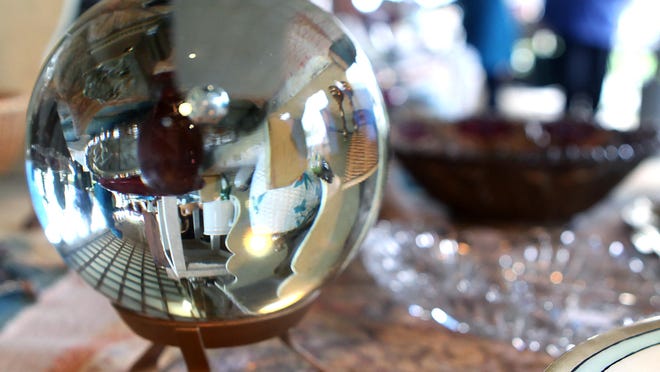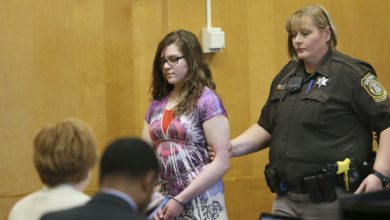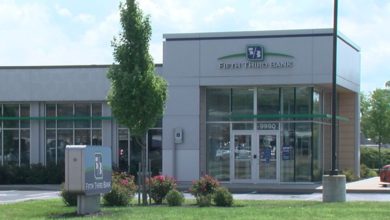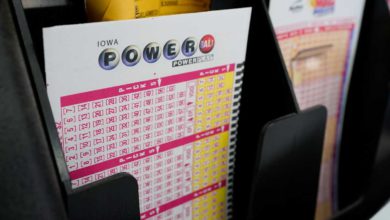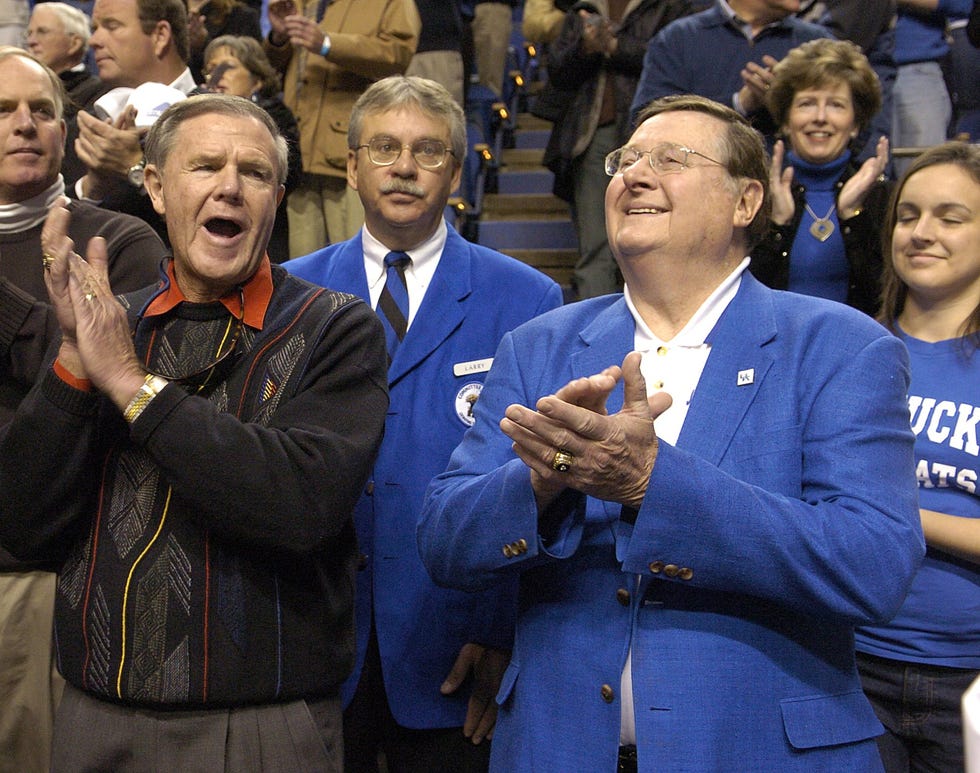
Andy Wolfson, C. Ray Hall
LOUISVILLE, Ky. — Joe B. Hall, who coached the University of Kentucky men’s basketball team to three Final Fours and the 1978 national championship but could never escape the shadow of his predecessor, the legendary Adolph Rupp, died Saturday morning. He was 93.
Hall led the Wildcats to 297 wins over 13 seasons from 1972 to 1985 and to its first title without Rupp.
But fans never fully embraced Hall and routinely second-guessed and even savaged him on sports talk radio.
Even after after he led UK to its fifth national crown at the Final Four in St. Louis, he famously called it “a season without celebration,” thanks to the all-or-nothing expectations placed on his team from the outset.
“I think that the pressure of following somebody like Adolph Rupp can absolutely eat you up like acid, just destroy your whole system,” Hall told The Courier Journal in 2003, the year he turned 75.

Kentucky basketball:Giving Joe B. Hall 'proper respect' for integrating UK basketball part of Rupp Arena debate
'No surprises'
He claimed the pressure never bothered him because had had served as an assistant for seven years and knew how demanding its fans were. “There were no surprises,” he said.
But his longtime friend, Lexington lawyer Terry McBrayer, told The Courier Journal Magazine in 1985 that Hall was far more sensitive than he would ever admit.
“He lives this school and Big Blue 24 hours a day, seven days a week,” said McBrayer, who died in 2020. “He doesn’t like the booing. It hurts him. It doesn’t make him mad. It hurts him.”
When UCLA was looking for a successor for legendary coach John Wooden after he retired in 1975 with 10 NCAA crowns, Hall quipped that the school should simply hire him, giving his experience in following a legend.
“That way,” he said, “you only ruin one man’s life.”
But Hall reinvented himself after his retirement from coaching, becoming a figure of affection in the commonwealth, as he teamed with former adversary and University of Louisville coach Denny Crum as co-host of the “Joe B. and Denny Show.”
Syndicated on radio stations statewide from 2004-2014, the program showed a different side of Hall – warm, affable and funny.
"We just love him," Crum's wife, Susan Sweeney Crum, recently told the Courier Journal after organizing a campaign to send birthday cards to Hall at his nursing home. "Denny used to say people thought we weren't supposed to be friends. Plus, they were all so busy with their own teams. (But) They both love some of the same interests, hunting and fishing, and when they did their show they got to be good pals."
The likable, tough coach
Hall had been Rupp’s top assistant, but his only previous head coaching experience came at Denver’s Regis College and Central Missouri State. He was once described by Sports Illustrated magazine as “a former ketchup salesman.” He had, in fact, been a salesman for the H.J. Heinz company, doing some of his most persuasive work in high school cafeterias.
More:After his town took care of him, Joe B. Hall will forever watch over Cynthiana
He took over the UK program seven seasons after its landmark loss to Texas Western – and its five Black starters – in the 1966 national championship game.
Hall fully integrated a UK program that had stood, intentionally or not, as a symbol of resistance to integration through the 1960s.
The year before Hall became head coach, the team had no Black players; on his final team, eight of the 13 players were Black. Four of Hall’s seven All-Americans – Sam Bowie, Jack Givens, Melvin Turpin and Kenny Walker – were African Americans.
Hall in 1974 also hired the first Black assistant coach in UK basketball history, Leonard Hamilton. When Hamilton, later head coach at Oklahoma State, University of Miami, the NBA’s Washington Wizards and Florida State, talked about the things he had learned from other coaches, he cited Hall for his toughness.
“He stayed the course,” Givens told The Courier Journal last year. “He continued to recruit the best players he felt were out there, regardless of whether they were Black or white. That’s the thing that he did that kind of changed the whole view or started to change the whole view of Kentucky basketball.”
Hall was physically resilient, too, surviving cancer surgery in 1988 and a triple bypass 10 years later.
His team was the first to play in Rupp Arena, in 1976. His name appeared on the lodge that boosters built for UK players in the 1970s.
And he was the coach when the NCAA twice put the Wildcats on a collision course in the NCAA Tournament to play the University of Louisville, which it refused to schedule in the regular season.
More:Joe B. Hall's 93rd birthday buoyed by Denny Crum contributions
First, in 1982, UK had only to get by underdog Middle Tennessee State. The Wildcats lost. Then, the next year, the two schools finally met in what became known as the Dream Game. Hall’s Wildcats fought back to tie the game before losing 80-68 in overtime.
'Fished all over the world'
Louisville wanted the series; Crum had been calling for it ever since arriving in 1971. Kentucky and Hall resisted, fearing that the General Assembly would see the two universities as equals and reduce UK’s funding edge. But public and political pressure for the game grew after Louisville’s classic win in Knoxville and UK finally relented.
After they left coaching, their old rivalry had long since faded when they began their morning radio talk show, in 2004. They could talk about bass as easily as basketball, since both were avid fishermen.
And they seemed to be genuinely fond of each other, to the surprise of fans of both programs.
“I’m like Denny,” Hall said. “I’ve fished all over the world.”
Born Nov. 30, 1928, Hall grew up in Cynthiana, where his mother, Ruth, was a florist and his father, Charles, ran a dry-cleaning business and served two terms as Harrison County sheriff.
When asked what the “B” in his name stood for, Hall often replied, “Basketball.” His actual middle name – Beasman – came from his mother’s side of the family.
He played guard at the old Cynthiana High School and went off to UK in 1946 to play basketball, but found Rupp’s team stockpiled with a cast of All-Americans who would eventually win three NCAA championships in four seasons.
Hall transferred to the University of the South, in Sewanee, Tenn., where he set a single-game scoring record with 26 points. After his senior season, he played on a college all-star team that accompanied the Harlem Globetrotters on a 58-game European tour. He eventually returned to UK to finish work on his bachelor’s degree.
Hall was a production planner for a manufacturing company in Cynthiana when he decided to become a coach in 1956.
“I kept watching guys advance who had engineering degrees, and here I sat with a degree in phys ed,” he recalled in 1985. “I loved sports and spent all my spare time either refereeing or playing. So I figured I’d better get into the field I had prepared for.”
Kentucky basketball:Why did it take so long for Adolph Rupp to sign a Black player? Listen to his explanation
He coached football and basketball at Shepherdsville High from 1956-58, then became assistant coach at Regis, a small Jesuit college in Denver. One of his recruits was center Louis Stout, from Hall’s home town of Cynthiana. Years later, Stout recalled Hall’s distaste for underachieving.
“We beat Montana State on a Friday and lost to them the following night, “Stout said. “When we got changed, we noticed that the manager was getting out practice uniforms. We practiced until 1:30 a.m. and then he conducted a bed check at 2 a.m.”
Hall returned to Lexington in 1965 as Rupp’s assistant. He soon became UK’s top recruiter. With no secretary, Hall sent hand-written letters to recruits.
“I guess that turned out good in a way,” Hall said in his 1981 biography, “Joe B. Hall: My Own Kentucky Home,” written by Russell Rice.
“When a player that I was recruiting got one of those letters,” Hall said, “he felt that personal touch because most of the letters he had received from other colleges were typewritten.”
In 1969, Hall left UK – briefly – to become the coach at St. Louis University. He was on the job a week before returning to UK, apparently comfortable that Rupp would recommend him as his successor.
But as he was about to be forced into mandatory retirement in 1972, Rupp seemed to anoint assistant coach Gale Catlett – not Hall -- as his successor.
Hall got the job, but Rupp did not go gently into retirement. He kept an office in Memorial Coliseum and kept his television show.
Hall faced a "double whammy," recalled Billy Reed, the former sports writer for The Courier Journal and the Herald Leader. "Following in the foot steps of the then-winningest coach of all time -- and one who didn't want him as his successor."
More:Joe B. Hall and the three-legged pig
Hall won the affection and respect of some fans and sportswriters after successes in the NCAA Tournament, Reed said, but then he changed, becoming an authoritarian like Rupp and digging in his heels by refusing to play U of L.
In his first season, in 1972, Hall took over a team that included prize sophomores Kevin Grevey, Jimmy Dan Conner and Mike Flynn, playing their first season, thanks to an NCAA rule that prohibited freshmen from playing varsity ball.
Some fans spoke of an undefeated season; more optimistic followers predicted a three-year run of NCAA championships. Such talk evaporated when UK lost two of its first three games, to Iowa and Indiana.
In the fourth game, Hall showed a fiery side as UK fell behind North Carolina 52-26 at Louisville’s Freedom Hall. At one point, the new UK coach ripped off his sport coat and flung it to the floor, then stomped it, and appeared ready go after a referee until he was restrained by Conner.
“I got emotional,” Hall recalled years later. “Somebody had to get emotional. It was the turning point of my life. I had to set fire to the building or something.”
His listless team cut the 26-point deficit to six before losing 78-70, but in his first year it advanced to the NCAA’s Elite Eight, where it lost to Indiana.
That rivalry continued to heat up in Hall’s third season ,when Grevey and company – now seniors – were joined by another stellar freshman class, which included Givens, Rick Robey, James Lee and Mike Phillips.
His Indiana turning point
Early in the season, Indiana embarrassed UK 98-74 and IU coach Bob Knight added insult to injury when after the game he cuffed Hall on the back of the head. Knight said it was playful; Hall didn’t see it that way.
“From that moment, Hall became a different coach – tougher, meaner, angrier,” Courier-Journal columnist Billy Reed wrote.
Three months later, UK ruined Indiana’s unbeaten season with a 92-90 upset in the NCAA Mideast Regional final.
The victory sent UK to the Final Four, where it fell 92-85 to UCLA in the NCAA championship game -- Wooden’s last.
UCLA would go 19 years without another national championship; UK only had to wait three.
Kentucky basketball:UK and Notre Dame took opposite stances on segregated 1956 basketball tournament
In its opening game of the 1978 NCAA Tournament. His team fell behind Florida State 39-32 at halftime. Hall kept three starters on the bench to start the second half, and sent in reserves Dwane Casey, Fred Cowan and Lavon Williams. They made up some of the deficit and helped inspire the starters. Hall’s gamble worked, and UK won going away.
Four games later, Kentucky defeated Duke 94-88 for the championship as Givens scored 41 points.
But at the Final Four in St. Louis national media drew sharp contrasts between Duke’s beaming youngsters and UK’s seemingly joyless players.
There were other reasons for melancholy. Rupp died early in the season, at practically the same moment UK was wrapping up a victory at Kansas, his alma mater. And UK was in the middle of a two-year probation that included the loss of six scholarships because of recruiting violations.
Scandal fell again, seven years later when the Lexington Herald-Leader reported that 26 former UK players said they received cash from boosters during Hall’s tenure. The Lexington paper won a Pulitzer prize for its work.
Several players said they were misquoted or misunderstood, and NCAA investigators were unable to prove the allegations.
But Hall announced his retirement on March 22, 1985, after an 86-70 loss to St. John’s in the NCAA West Regional, in Denver, the city where his college coaching career began.
“I didn’t want to become an ‘old coach,’” he said the night he retired. “I was with coach Rupp from his 64th to 71st years, and I saw what the stress did to him.”
Hall later reflected on what he had missed because of a singular devotion to the game.
“I had coached for 29 years, and that was my life,” he said. “I’d spent 29 years with a single-minded approach to life -- and very little time for my family, very little understanding of the real world.”
After basketball, he went into the banking business in Lexington, ultimately retiring in the late 1990s to a life of hunting and fishing -- and feasting on high school and college games. He frequently had breakfast with friends at Wheeler Pharmacy in Lexington.
Hall’s wife of 55 years, Katharine, died in May 2007. He is survived by two daughters, Judy Derrickson and Kathy Summers, and a son, Steve.
His place in UK basketball may have fallen below the acceptable standard, which to many fans is perfection. But during his tenure, his teams averaged 23 victories a season and won or shared nine Southeastern Conference regular-season titles.
And in his 13 years, during which his team made three Final Fours and won both an NCAA and a National Invitational Tournament, he outperformed Rupp in his final 13 years on the bench.
Twenty-five years after Hall’s NCAA title, Hall remembered how the next year he got a letter from athletic director Cliff Hagan raising his salary my salary to 45,000 a year and was “tickled to death” about it.
“That was a lot of money in 1978-79,” he said. “It doesn’t compare to what coaches are making today, but I wouldn’t trade my association with Kentucky basketball with anybody in any other profession.”
Courier Journal reporter Jon Hale contributed to this story.



